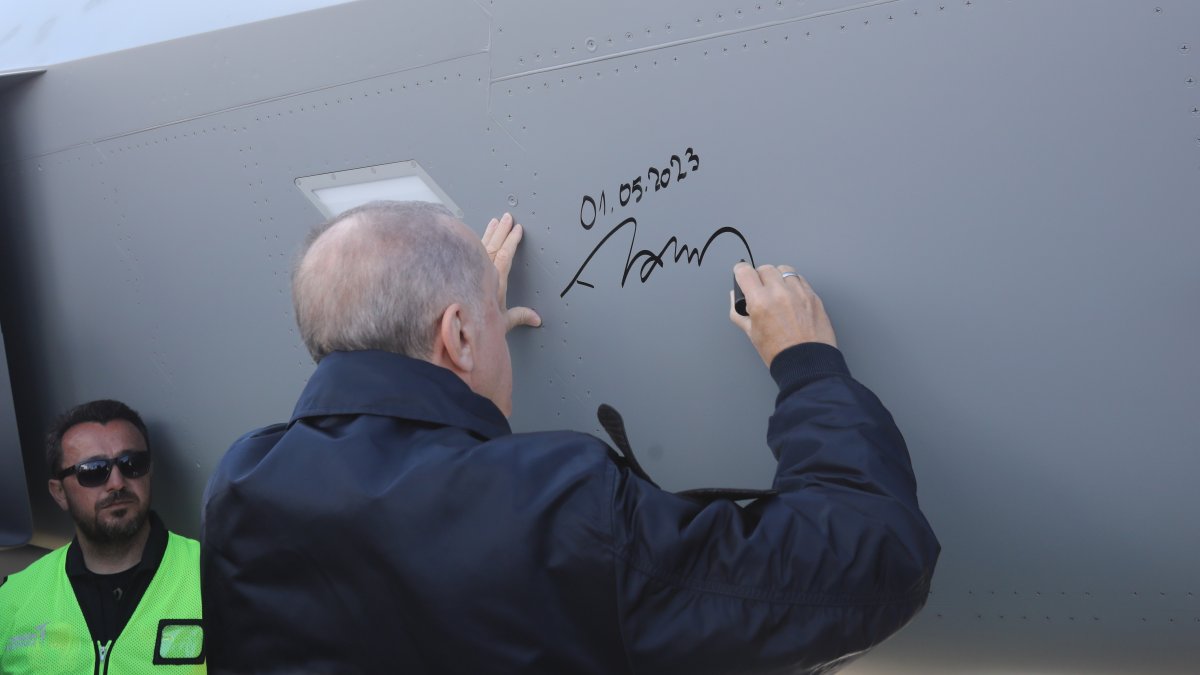Over the past two decades, under the leadership of President Recep Tayyip Erdoğan, Türkiye has undergone a broad and far-reaching transformation in nearly every aspect of social life. Decisive steps taken in diverse fields such as education, health care, transportation, infrastructure, energy, the defense industry and tourism have significantly strengthened the country’s position both regionally and globally. Among these areas, one of the most strategic dimensions of this transformation is undoubtedly the remarkable rise of the defense industry. Today, the defense industry is not merely a field that enhances military capability; it has become a cornerstone of economic growth, technological advancement, international influence and national self-confidence. The picture that emerges is a concrete example of how a nation, guided by a long-term vision and empowered by its own resources and human capital, can craft a powerful success story.
At the foundation of this success story lie the consistent policies and institutional structures implemented since 2004. During this period, the domestic contribution rate in the defense industry rose from approximately 20% to over 80%, enabling Türkiye to rapidly reduce its external dependency in critical technologies and establish a self-sufficient production infrastructure. The expansion of domestic production on this scale has transformed the defense industry into one of the country’s leading sectors, both strategically and economically.
Today, the Turkish defense industry operates with an annual turnover exceeding $20 billion (TL 848.90 billion), approximately $3.5 billion in R&D expenditures, more than 1,380 active projects, and a broad project portfolio valued at over $100 billion. The ecosystem includes more than 3,500 companies and employs over 100,000 qualified personnel, with an average age of 34. This human capital structure demonstrates Türkiye’s ability to convert its young population advantage into technological capability and innovation. Consequently, this young and highly specialized workforce advances Türkiye’s capacity to nationalize technology and develop original systems with each passing year.
Defense exports are also one of the strongest indicators of this success story. In 2024, exports increased by 29% compared to the previous year, reaching $7.15 billion. Over the last five years, they have grown by an annual average of 20%, elevating Türkiye to the position of the world’s 11th largest defense exporter. In the same year, Turkish defense companies signed contracts exceeding $10 billion, covering unmanned aerial vehicles (UAVs), helicopters, land and naval platforms, ammunition, electronic systems, and missile technologies. Today, Turkish defense products are exported to 185 countries, and more than 230 types of products are actively used around the world.
One of the most striking examples of this advancement is in the field of UAVs and unmanned combat aerial vehicles (UCAVs). Türkiye ranks among the world’s top three countries in UAV and UCAV technologies; its products in this field are preferred globally due to their operational performance, cost-effectiveness, and broad range of applications. In addition, Türkiye is among the 10 countries capable of building its own warships, and it has reached a globally competitive level across a wide spectrum of capabilities, including radar systems, electronic warfare components, ammunition, land vehicles, and missile technologies.
One of the most important platforms enhancing the global visibility of the defense industry, the 17th International Defense Industry Fair (IDEF 2025), hosted more than 120,000 visitors, held 270 signing ceremonies and reached a total contract volume of $9 billion. The fact that 65% of this volume was export-oriented clearly demonstrates Türkiye’s rising position in international markets.
The primary institutional structure behind these developments is the Presidency of Defense Industries (SSB). The SSB plays a strategic role as both the architect and the driving force of the transformation in the defense sector. It identifies the needs of the industry through long-term projections, develops programs that ensure independence in critical technology areas and operates coordination mechanisms that align all stakeholders toward common objectives. The SSB’s effectiveness in project management, its innovative approach to procurement models, its strengthening of industry-education cooperation, and its policies that promote R&D-oriented production have exponentially increased the sector’s performance. Today, Türkiye’s ability to produce original systems across a wide spectrum – from UAVs to naval platforms, from electronic warfare to land systems – is largely the result of the SSB’s determined and visionary governance model.
Another fundamental pillar of the rise in the defense industry is the investment made in R&D and innovation. According to the Türkiye 2024 R&D and Innovation Report published by the Istanbul-based SER Akademi, fixed investment in the aerospace sector increased sixfold compared to the previous year, while employment grew 10-fold. The 8% increase in the number of firms operating in high-technology fields and the 23% surge in exports indicate that Türkiye has entered a new phase in advanced technology production. Within the manufacturing sector, the share of aerospace R&D expenditures rose from 10% a decade ago to 31% today; meanwhile, public R&D expenditures increased by 167%, reaching a historic level. The fact that the defense industry accounts for 43% of these expenditures clearly demonstrates that the sector serves as the backbone of Türkiye’s innovation ecosystem.
In sum, all these indicators show that the developments in the defense industry are not merely technical or economic progress; they also demonstrate that Türkiye is a nation that trusts its own capabilities, is willing to take risks, can develop long-term strategies, and is able to implement those strategies with determination. Today, the defense industry stands at the center of Türkiye’s national security architecture as well as its scientific and technological transformation toward high technology. In this sense, it is not only addressing the needs of today but also carrying the vision that will shape the Türkiye of the future – the “Century of Türkiye.”
The views and opinions expressed in this article are solely those of the author. They do not necessarily reflect the editorial stance, values or position of Daily Sabah. The newspaper provides space for diverse perspectives as part of its commitment to open and informed public discussion.

